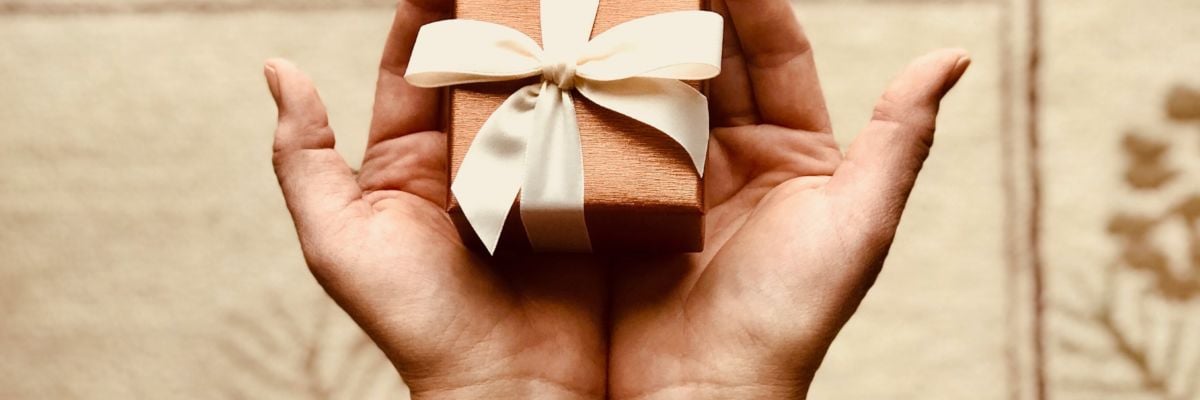
Have you ever complained about a difficulty, only to be told, “Offer it up!”? What does this phrase mean? As we approach Good Friday and remember Jesus’ offering of himself on the cross, it’s a good time to ponder the notion of sacrifice.
Sacrifice goes back almost to the beginning of time. In Genesis 4, Cain and Abel, the sons of Adam and Eve, offer sacrifices of crops and animals to God. Notice that God doesn’t seem to have commanded them to do this; they simply did it, as if by instinct. Humans throughout time have had the same instinct. Sacrifice was fundamental to most ancient religions and is still practiced in some cultures today.
Later, when God brought his people out of Egypt and established a covenant with them, he did command his people to offer sacrifices to him as part of that covenant. Large passages of Exodus, Leviticus, and Deuteronomy are filled with instructions on sacrifices, detailing what animals or how much grain to offer for different situations. Some sacrifices were required: daily offerings to acknowledge God’s presence and power, guilt offerings when a sin was committed, and offerings for ritual cleansing. Others were free-will offerings—whatever a person wanted to give to God above what was required. Most memorably, each year, the Israelites were to sacrifice a lamb for each household and eat it with unleavened bread. This sacrifice commemorated the Passover: when God saved the firstborn sons of Israel from the Angel of Death.
Today, we aren’t required to sacrifice lambs, turtle doves, or ephahs of grain. Why? Because Jesus offered the final, perfect sacrifice to pay the price for all sin by dying on the cross. The Letter to the Hebrews says, “It is impossible that the blood of bulls and goats should take away sins. . . . We have been sanctified through the offering of the body of Jesus Christ once for all” (10:4,10).
But this verse doesn’t mean that all sacrifice is over. Firstly, although Jesus’ sacrifice is the ultimate guilt offering and ultimate Passover lamb, nothing about his death stops us from making a free-will offering to God as an act of love and gratitude. Secondly, something so instinctive to man and so important to God doesn’t simply pass away; it gets fulfilled.
On the night before his death, Jesus broke bread and drank wine with his apostles, telling them, “This [bread] is my body which is given for you. Do this in remembrance of me. . . . This cup which is poured out for you is the new covenant in my blood” (Luke 22:19-20). In other words, “This is my body—the same body that will suffer and die tomorrow to save you from your sins—which is offered as a sacrifice for you. This cup of wine is my blood, the sacrificial blood of a new covenant between God and man. Repeat what I am doing now, as a memorial of my sacrifice.”
The Old Covenant priests offered daily sacrifices on behalf of the people and commemorated the Passover, when God saved his people’s firstborn sons from death. The New Covenant priests in the Catholic Church—successors of the apostles—offer Jesus’ perfect sacrifice daily in the Mass, commemorating and making present the moment when God saved all his people from sin.
As people of the New Covenant, Christians are required to participate in the sacrifice of the Mass on Sundays and a few other days each year, just as the people of the Old Covenant were required to make certain sacrifices for certain situations. But we can choose to go to Mass any day, even every day, if we want to go above and beyond what is required. The Catechism says that the sacrifice of the Mass serves several purposes: to thank God the Father for the gift of creation, to memorialize the sacrifice of God the Son, to apply the merits of that sacrifice to the sins we commit today, and to make Christ present through the power of his word and spirit (1356-1381). All the reasons for the Old Testament sacrifices are fulfilled in a single, new, unbloody sacrifice perpetually offered by the people of the New Covenant, the Church.
We can “offer it up” in other ways, too. In fact, the Catechism says (quoting St. Augustine), “Every action done so as to cling to God in communion of holiness, and thus achieve blessedness, is a true sacrifice” (2099). So every good action can be offered to God if it is done with the right intention: to grow closer to him and, ultimately, be totally united to him in heaven.
That includes prayer, acts of charity, and simply doing our daily duties, as well as suffering cheerfully. All that is necessary is to have the intention of giving your actions to God, in union with the sacrifice of Jesus on the cross and on the altars around the world—perhaps with a brief internal prayer. In fact, it’s a good custom to pray a morning offering upon waking up, to express your intention of giving the entire day as a holy sacrifice to God.



